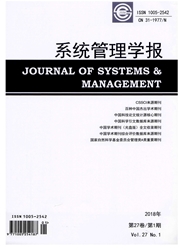

 中文摘要:
中文摘要:
借鉴实验经济学的研究方法,研究了监管、学习和声誉机制对联盟成员机会主义行为的影响。实验用囚徒困境模型表示联盟成员间的合作竞争关系,通过控制监管力度,逐步引入学习机制和声誉机制来比较分析各机制的作用及关系。结果表明,监管越完善,越有利于控制机会主义行为,但其成本也越高;学习机制的引入,可以进一步减少机会主义行为,但联盟中的学习者也可借助信息优势,在监管严格时回避风险,在监管放松时采取机会主义行为获取短期超额收益;声誉机制的加入使得机会主义行为进一步减少,联盟企业借助信息优势获取超额收益的副作用也被消除。
 英文摘要:
英文摘要:
Using experimental economics method for reference, this paper analyzes the impact of regulation, mutual learning, reputation and the interplay of them on alliance success. The experiment is based on prisoner dilemma game, which denotes the coopetition of alliance partners. We control monitoring and introduce learning and reputation step by step to compare their impacts. The experi- mental results indicate that regulation has notable effect on inhibiting opportunity behavior in alliance, yet high costly. Mutual learning can inhibit opportunity behavior more and reduce regulation cost. However, in virtue of mutual learning the learner in alliance may avoid the risk of punishment while regulation is strict and take opportunity behavior to gain short-term excess income while regulation is deficient. Reputation makes alliance partners reluctant or dare not to take opportunity behavior and the side effect of mutual learning is eliminated.
 同期刊论文项目
同期刊论文项目
 同项目期刊论文
同项目期刊论文
 Agency costs and corporate philanthropic disaster response: the moderating role of women on two-tier
Agency costs and corporate philanthropic disaster response: the moderating role of women on two-tier Allocation of control rights and cooperation efficiency in public-private partnerships: theory and e
Allocation of control rights and cooperation efficiency in public-private partnerships: theory and e 期刊信息
期刊信息
